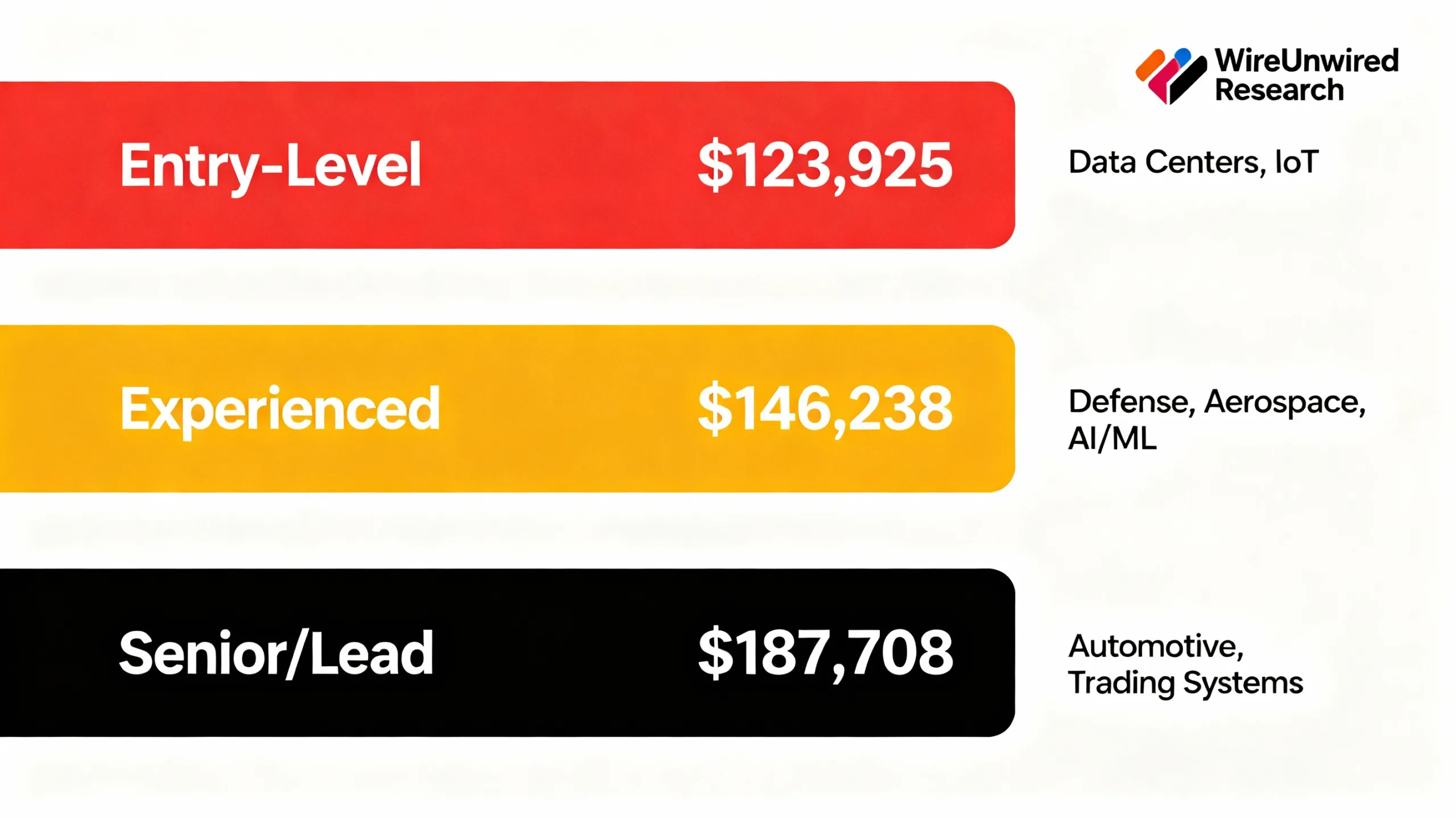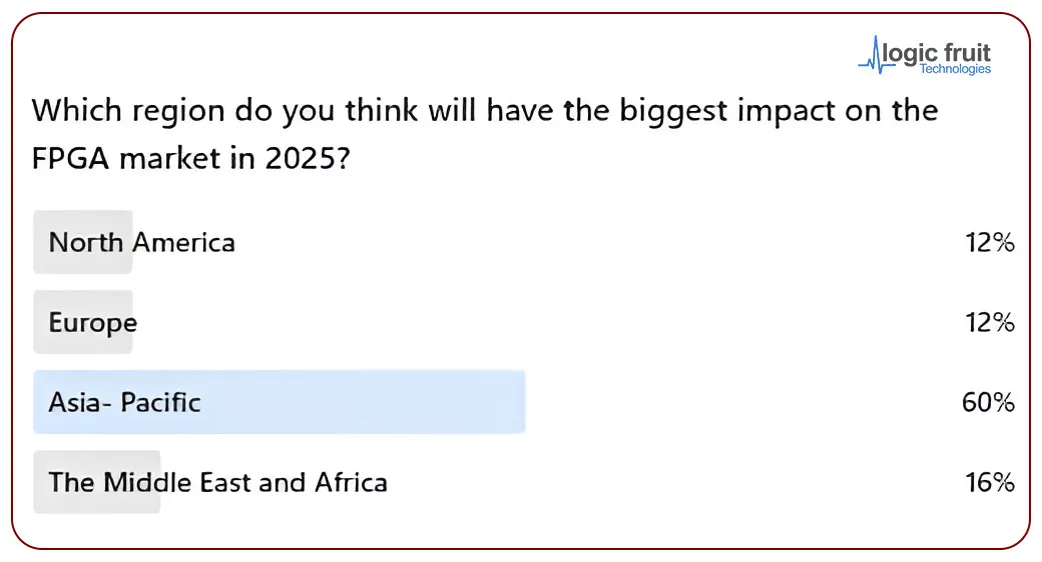Key Insights
- FPGA engineering remains in high demand for defense, AI, and specialized hardware roles, with global market growth projected at nearly 11% CAGR through 2030.
- Entry-level FPGA positions are competitive, but mastering niche skills and broadening expertise into embedded systems and PCB design can increase job prospects.
- Asia-Pacific leads global FPGA growth, while defense, aerospace, and AI-driven sectors offer strong salary and stability for experienced engineers.
A single programmable chip can reconfigure itself for radically different tasks—driving a self-learning robot one moment, then accelerating data center AI the next. That’s the promise of FPGA technology, and it’s why many engineers wonder: Is learning FPGA still a smart move for your tech career, or is it becoming a niche specialty?
FPGA Job Market in 2025: Robust Growth and Competitive Entry

The global market for Field Programmable Gate Arrays (FPGA) is forecast to reach $11.14 billion in 2025, expanding to $18.76 billion by 2030 at a compound annual growth rate of 10.98%, according to Mordor Intelligence. This growth is fueled by rising demand in sectors like data centers, AI/ML acceleration, and industrial automation.
- In the U.S., FPGA engineer salaries average $146,238 annually, with entry-level roles starting above $120,000 and experienced professionals exceeding $180,000, especially in defense and aerospace .
- Demand is highest for those who can optimize for power efficiency and high performance, leveraging new design flows powered by generative AI tools .
- Entry-level competition is intense, as more graduates target hardware roles and employers increasingly seek engineers with full-stack skills—comfortable with both HDL (Verilog, VHDL) and high-level synthesis (HLS) tools.
A table illustrating salary ranges and market sectors would help visualize these trends:
| Role Level | Average Salary (USD) | Key Sectors |
|---|---|---|
| Entry-Level | $123,925 | Data Centers, IoT |
| Experienced | $146,238 | Defense, Aerospace, AI/ML |
| Senior/Lead | $187,708 | Automotive, Trading Systems |
FPGA Engineering: Niche, But Not Obsolete
While the FPGA job market is robust, the field is increasingly niche. According to Logic Fruit Technologies Specialists are most valued in sectors where custom hardware and reliability are critical—defense, aerospace, high-frequency trading, and AI acceleration. In mainstream consumer electronics, powerful MCUs and SoCs often replace FPGAs for cost and scalability .
- FPGA chips excel where reprogrammability, low-latency, or real-time processing is crucial—such as PCIe networking, on-the-fly FFT, or advanced instrumentation.
- However, the cost of FPGA chips, specialized PCBs, and proprietary IDE licensing can be prohibitive for smaller projects or startups.
- Companies leading FPGA hiring include Lockheed Martin, Optiver, and startups in AI hardware.
In regions where FPGA is less taught (such as Azerbaijan or Latin America), breaking into the field may require self-study, online courses, and practical project experience. Building a portfolio with open-source tools, showcasing familiarity with Xilinx, Vivado, Verilog, or VHDL, and networking internationally can open doors .
Broadening Your Skillset: Embedded Systems, PCB Design, and AI
Experts recommend aspiring engineers combine FPGA skills with related domains:
- Embedded software and microcontrollers: These skills are in wider demand, with similar problem-solving challenges and broader applicability in consumer and industrial products.
- PCB design: Understanding board layout and routing for high-speed signals, integrating companion ICs, and interfacing with processors increases employability.
- AI/ML hardware acceleration: FPGAs are increasingly used to develop custom inferencing engines for edge devices and data centers.
- High-speed signal design: Sought in telecom, networking, and automotive sectors.
Asia-Pacific is expected to have the greatest impact on FPGA growth, driven by a robust semiconductor manufacturing ecosystem and expanding telecom and automotive sectors. Europe and North America remain strong in defense, aerospace, and AI research .

Should You Invest in FPGA Skills?
For those passionate about hardware, mastering FPGA design opens doors to high-impact, well-compensated roles—especially if you combine it with embedded systems, PCB design, or AI hardware acceleration. The field is niche and competitive, but not obsolete. Continuous learning and practical project experience are key to breaking in and staying relevant.
If you’re in a region where FPGA jobs are scarce, build your skills portfolio, network globally, and consider broadening your expertise. The future of FPGA engineering is bright for those who adapt and specialize.
Discover more from WireUnwired Research
Subscribe to get the latest posts sent to your email.




